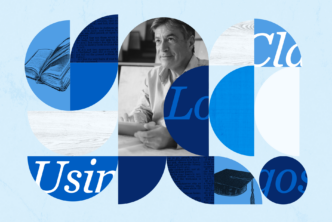Having spent time around a lot of seminarians, I can tell you that the nitty-gritty, practical realities of pastoral life don’t get talked about enough. That’s a problem. But the bigger problem, in my view, is that whenever these things are talked about, it’s in a way you can’t really reproduce.
I’ve watched too many pastors try to take the methods given to them for preaching, church planting, finances, liturgy, music, etc. and end up getting burned out because it doesn’t “stick” with their people and their location.
It’s my belief that we need less simplistic stories of other people’s effectiveness, and we need a more robust theology that any church leader can then take to their own people and contexts and discern what it looks like for them.
To that end, I want to offer all you weary seminarians and church leaders a couple of theological principles about church finances and resources that I have found most effective in my life and ministry.
Economics of Abundance
“It is here that the revolutions of empty and inordinate desires takes place: of the lust for a superabundance which is not the natural and beautiful abundance of life but the overflow of nothingness….”
—Karl Barth (p.538)
“We live lives at the intersection of two stories about the world: the Eucharist and the market. Both tell stories of hunger and consumption, of exchanges and gifts; the stories overlap and compete.”[2] —William Cavanaugh (p.89)
When it comes to financial stewardship, I have two guiding principles (stayed tuned for another post for the second one). The first is that the Kingdom of God is an economy of abundance that protests the dominant economic narrative of our culture that resources of all kinds exist in a state of scarcity.
An economy of scarcity means we must compete in a zero-sum game to maximize our gains and defend against our losses. To lead on the basis of scarcity is to seek excellence not to honor God, but to “compete” in the ecclesial marketplace for the most market share. It is to turn fundraising into conquests and battles, rather than a loving invitation into vision and mission, as Henri Nouwen beautifully reminds us.
In my personal life, scarcity breeds anxiety, worry, and fear; letting the next pay-grade guide my job decisions more than vocational call. It puts a greater emphasis on saving now rather than spending wisely.
As Cavanaugh’s quote above reminds us, the narrative that Christians live by is one of abundance, a story embodied in the Eucharist. “[T]he abundance of the Eucharist is inseparable from the kenosis, the self-emptying of the Cross…God is the food that consumes us” (p.95). This story reminds us that our primary relation to the goods given to us by our good God is not to grip tightly for fear of losing it, but to have a radical gratitude and therefore freedom to give of ourselves and resources.
A Theology of Abundance increases our security as we seek new resources and money for the Kingdom vision God gives us. We know there is far, far more than enough resources to accomplish God’s mission in the world. Therefore, we can set faithfulness before finances and trust God. We don’t have to freak out with every “no”, and we don’t have to see every “yes” as a cosmic guarantee of our “success”.
Further, this redefines that very “success”. If there is only $100 available to all pastors, and you $90 of it, this can skew how you view your fidelity, vision, and giftedness. If there is, frankly, no limit to the resources God can mobilize for his Church, then $90 is utterly irrelevant as a litmus test for one’s calling—it is simply a means to an end that happened to be moved into your hands.





